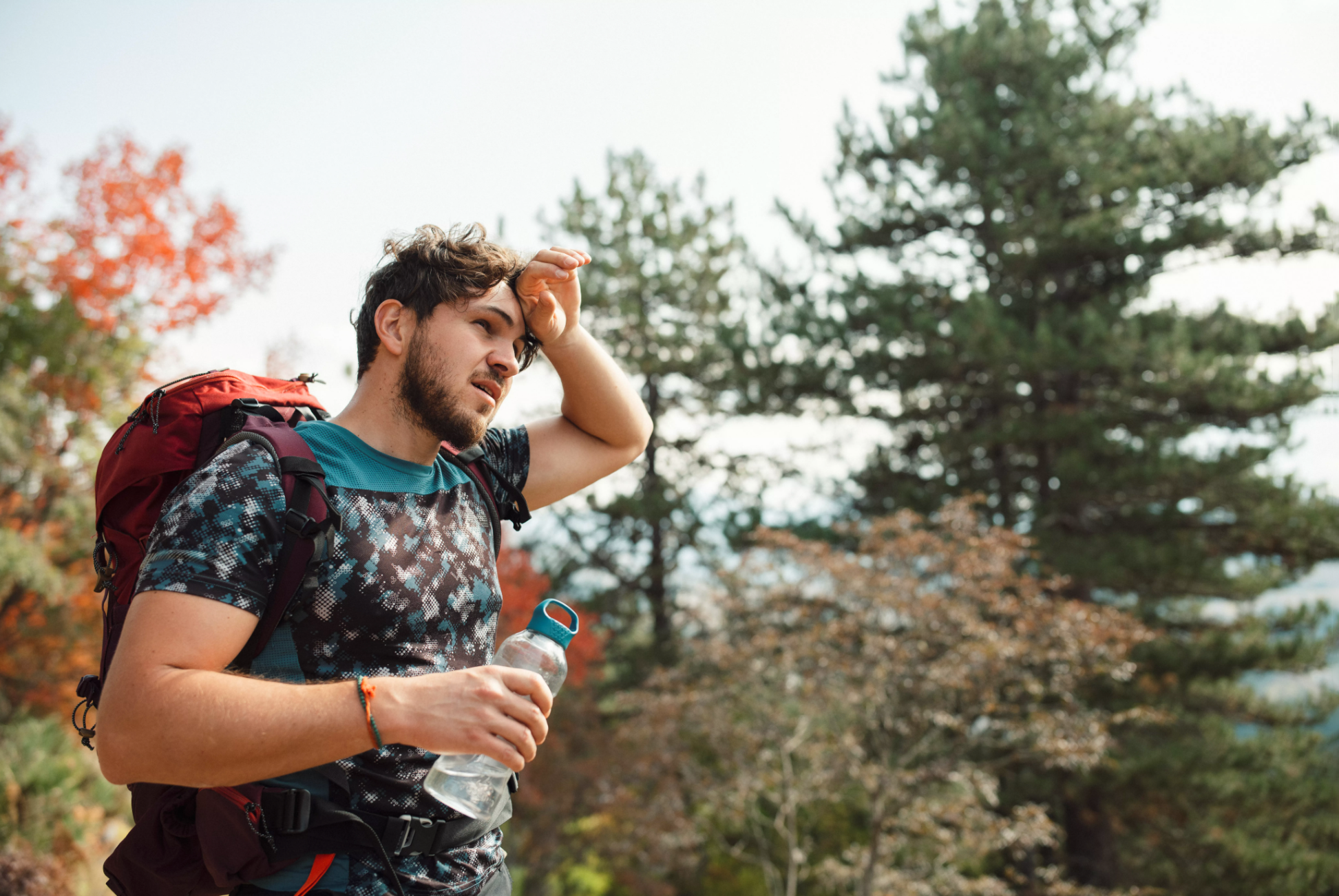
Having a heat wave: how to prevent heat-related illnesses
You may have noticed this past June was the hottest month on record in many places throughout the country. These high temperatures are expected to continue – and perhaps even worsen – during the second half of the summer.
Heat-related illnesses, such as heat cramps, exhaustion, or stroke can occur when the body becomes overheated after being exposed to high temperatures. Now is the perfect time, as you pack up for a beach day or get ready to enjoy a long hike, to brush up on ways to prevent these conditions.
You may have noticed this past June was the hottest month on record in many places throughout the country. These high temperatures are expected to continue – and perhaps even worsen – during the second half of the summer.
Heat-related illnesses, such as heat cramps, exhaustion, or stroke can occur when the body becomes overheated after being exposed to high temperatures. Now is the perfect time, as you pack up for a beach day or get ready to enjoy a long hike, to brush up on ways to prevent these conditions.
Heat exhaustion vs. heat stroke
Think of heat illness as a spectrum, explains John De Trolio, MD, chair of urgent care medicine for CityMD in Long Island, N.Y. Heat cramps, exhaustion, and stroke occur because you lose water, salts, and electrolytes, creating depletions and imbalances in your cells. Heat cramps are the mildest and earliest form of heat-related illness and can progress to heat exhaustion if it is not managed. While heat stroke is an extreme and potentially fatal version of heat exhaustion.
It does not take long for heat exhaustion to develop or turn into heat stroke. “It is very easy to get dehydrated while working in the sun,” says Dr. De Trolio. “You don't even have to be working. Just being outside in the strong sun or during extreme heat can cause either heat exhaustion or heat stroke to occur in both humans and animals.”
Signs and symptoms
Heat cramps may be the first sign of a heat-related illness. Warning signs include:
- Sweating
- Painful muscle spasms, often in the legs, arms, abdomen, or back
- Weakness/lightheadedness
Heat exhaustion leads to flu-like symptoms, such as:
- Headache
- Dizziness/lightheadedness
- Weakness
- Nausea/vomiting
- Low blood pressure upon standing
When heat exhaustion turns into heat stroke, it can be quite serious. “It starts to affect your organs and central nervous system,” explains Dr. De Trolio. Heat stroke victims are unable to regulate their core temperature and suffer from neurologic dysfunction like confusion or slurred speech.
Heat stroke symptoms include:
- Chills
- Confusion
- Aggressive or bizarre behavior
- Fatigue/drowsiness
- Clumsiness
- Slurred or compromised speech
- Memory loss
- Seizures
- Temperature generally above 104°F
If heat stroke continues unchecked, Dr. De Trolio warns, you can also develop liver dysfunction. This condition can lead to blood clotting, internal/external bleeding, muscle breakdown, and fluid buildup in the lungs.
How to treat heat exhaustion and heat stroke
Between 30 and 80 percent of heat stroke cases are fatal. Dr. De Trolio says it is important to treat the signs of heat exhaustion right away, so it does not progress to heat stroke. Anyone experiencing symptoms of a heat-related illness should call 911 or have someone drive them to the closest urgent care or emergency room.
“Stop what you are doing immediately, find a cool area in the shade or air conditioning (if possible), fan yourself, and get fluids/electrolytes,” he says. “Also, remove any dark, restrictive, or tight-fitting clothing."
Drinking water is not enough to replace what has been lost from your cells. Dr. De Trolio explains that it takes more time for the body to make salts than it does to restore fluid. Along with finding a shady, breezy, or air-conditioned area, he suggests following these tips to help cool off:
- Spray water directly onto the skin
- Use ice packs on back of the neck, groin, and armpits
- Immerse the entire body in a pool or tub of water
Heat stroke prevention tips
The easiest way to prevent heat exhaustion or heat stroke is to stay inside with air conditioning during the hottest part of the day between 3 and 4:30 p.m. When that is not possible or practical, Dr. De Trolio advises everyone to “work in shaded and cool areas and preemptively stay well hydrated."
Drink plenty of water when you are working or playing in the sun. Being in the heat will make you sweat and lose fluids. The key is to take in more fluid than you use. Avoid caffeinated beverages and alcohol which will dehydrate you even more.
Certain medical conditions can also affect your ability to deal with heat effectively. If you have any of the following disorders, you are more susceptible to developing a heat-related illness and should take extra precautions. These conditions include:
- Infections
- Skin disorders
- Cardiovascular disease
- Diabetes
- Rare disorders such as malignant hyperthermia
Dr. De Trolio also notes that some medications and drugs can predispose you to heat-related illnesses. If you are on any of the following medications, be even more vigilant and take extra precaution to prevent heat exhaustion.
- Diuretics
- Beta-blockers
- Antihistamines
- Amphetamines
- Antidepressants

We’re ready to care for you.
Visit any CityMD urgent care location in your community today for an evaluation with one of our expert providers.